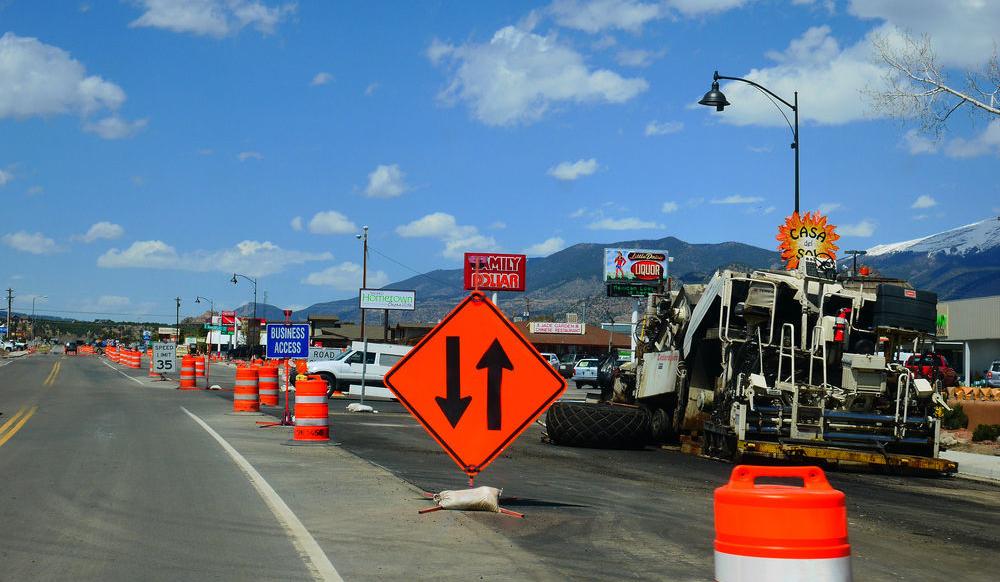(The Center Square) – A new report finds that Pennsylvanians have little to celebrate about its highway system when it comes to spending money efficiently.
The Reason Foundation’s 27th annual Highway Report gave the commonwealth a poor grade: 41st in the nation for highway performance and cost-effectiveness. The report compares states’ management and maintenance of their highway systems and tracks national trends.
“The condition of the highway system has improved slightly over the past couple years,” said Baruch Feigenbaum, lead author and senior managing director of transportation policy at the Reason Foundation. “The spending has actually been in line with the Consumer Price Index … We also find that the condition of the roadways, the pavement improved somewhat, traffic congestion improved somewhat as well.”
“We did, however, find that the fatality rate is ticking up,” Feigenbaum said. “That is a little bit troubling because for 40 years, it was decreasing.”
Pennsylvania scored better than New Jersey (44th) and New York (49th), but lagged behind the rest of its neighbors. To the west, Ohio scored significantly better: 17th.
Though Pennsylvania scored poorly overall, one of its highest ratings bucked the national fatality trend. Pennsylvania was ninth for rural fatalities, 29th for urban fatalities, and 35th for other fatalities.
Deaths due to distracted driving have gone up since the pandemic, as The Center Square previously reported, and pedestrian deaths have significantly risen over the last decade.
Feigenbaum emphasized that the transportation officials in the state deserve credit for doing better than most in reducing rural fatalities. He pointed to effective enforcement of driving laws and four-lane roads as possible explanations for reducing head-on collisions.
To improve in other areas, leaders need to take note of other states. The improvements in recent years nationally didn’t happen in a vacuum.
“It’s definitely better management practices and states learning from each other in terms of the best way to cost-effectively build roads,” Feigenbaum said.
He argued that a design-build approach to roads, where one firm designs and constructs a project, rather than a design-bid-build approach, where multiple firms work on a project, could give Pennsylvania better results.
PennDOT officials emphasized their dedication to infrastructure improvements.
“We believe investment in our infrastructure is critical and bringing Pennsylvania’s infrastructure into a state of good repair is a top priority of the Shapiro Administration,” PennDOT Press Secretary Alexis Campbell said. “Reducing and eventually eliminating transfers to the PA State Police, as proposed in Governor Shapiro’s budget, will help ensure that these much-needed state dollars will be used to support our large and aging roadway and bridge network.”
Campbell also noted progress on improving the commonwealth’s bridges.
“PennDOT has made a concerted effort to reduce the number of poor bridges in Pennsylvania,” she said. “As of today, our Bridge Conditions website shows we have gone from 6,034 of state-maintained bridges in poor condition [2008] to now 2,352 [2023]. We will continue to improve on this number.”
Looking toward some of the highest-scoring states, such as Virginia and North Carolina, as models could bring improvements. The Reason report suggested Pennsylvania prioritize spending on roadway and bridge maintenance and improve pavement conditions.
Maintenance has been a recurring theme in transportation discussions in the state; experts have testified about the financial burden that comes from deferring maintenance, as The Center Square previously reported. The tradeoff of saving money today can mean a higher cost tomorrow.
“(In Virginia), transportation has remained relatively bipartisan in a time when not much is bipartisan,” Feigenbaum said. “Political will or having a project champion is really important … There has to be a sort of acceptance that transportation is one of the more important things. There’s got to be some political courage and using some political capital in order to get projects done.”







